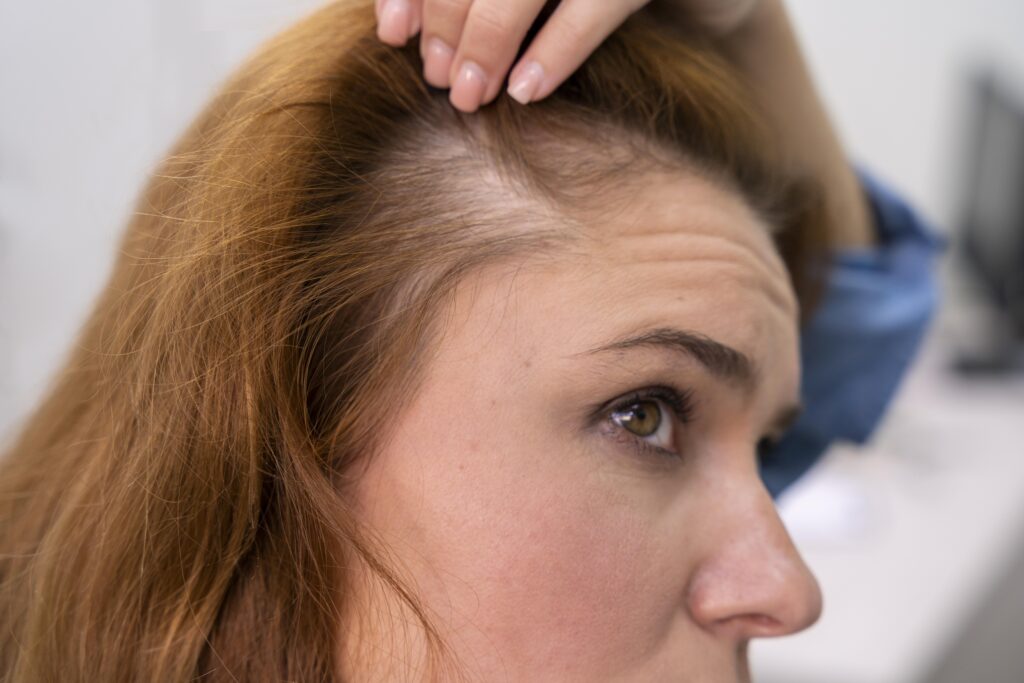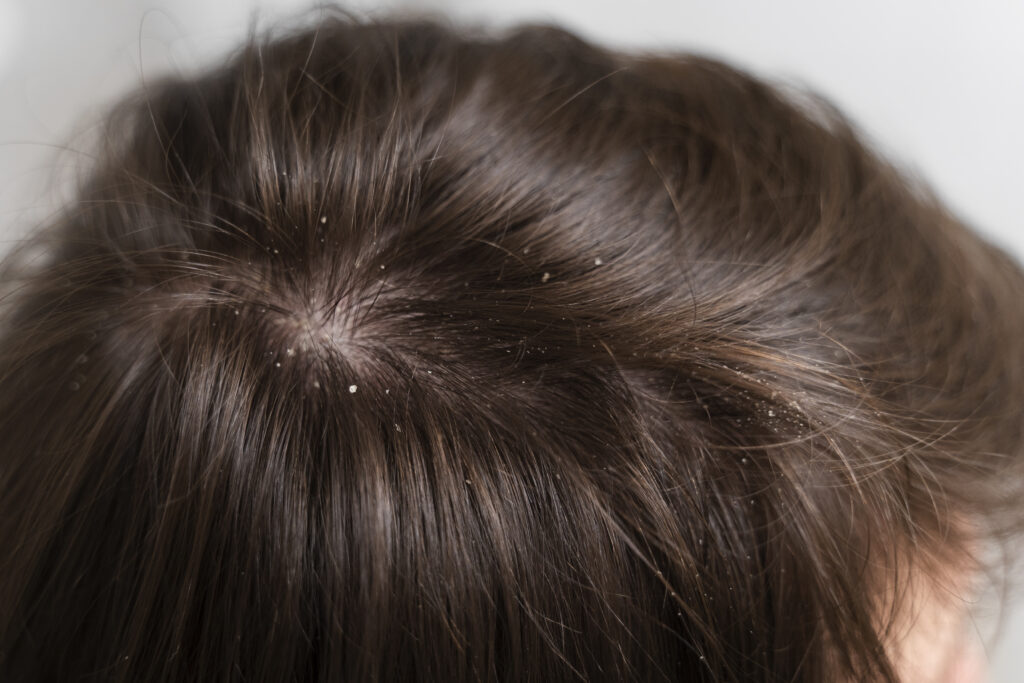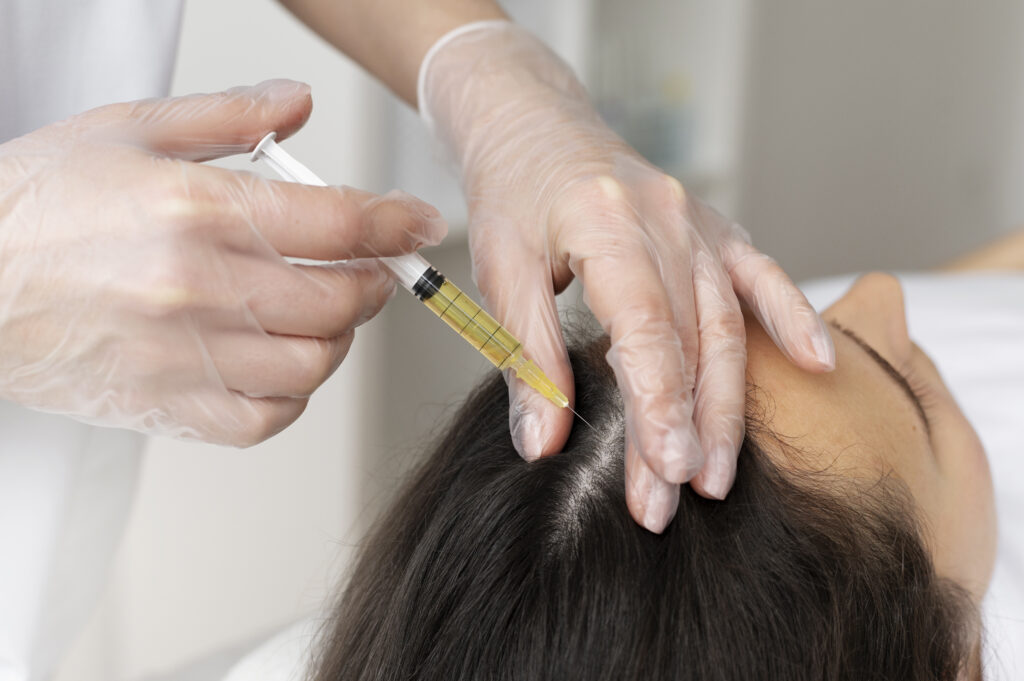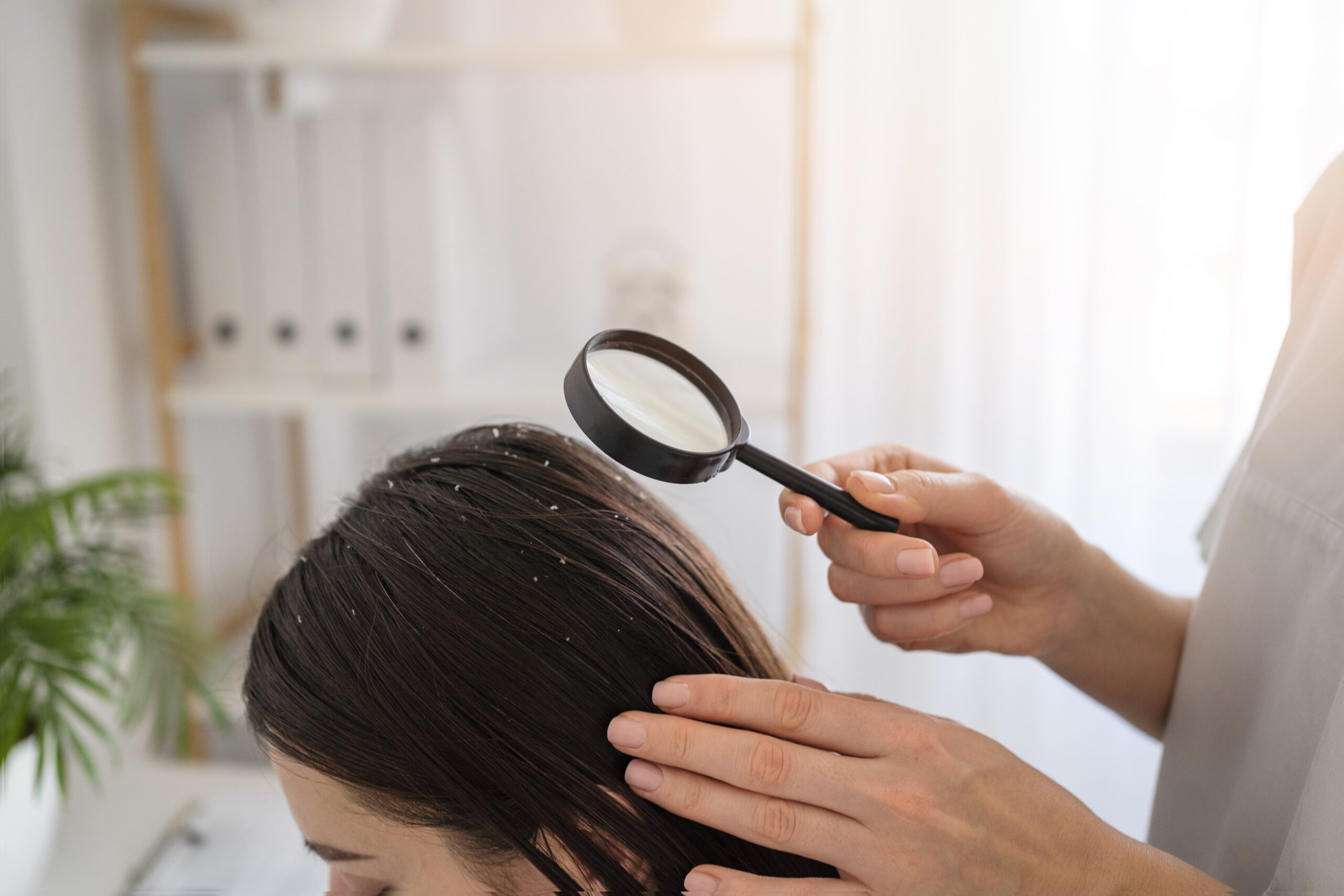Introduction (Pimples on Scalp)
Are those annoying zits on your scalp causing you any discomfort? It’s not just you. In this thorough guide, we’ll explore the causes, successful treatments, and preventive measures for scalp pimples, which can be inconvenient and even unpleasant.

Table of Contents
Understanding Scalp Pimples
- What Are Scalp Pimples?
Small, red bumps that can appear on the scalp are referred to as scalp pimples or scalp acne. They may feel painful to the touch and resemble facial acne. These zits can range in size and frequently include pus inside.
- Types of Scalp Pimples
Papules, pustules, and cysts are just a few of the different varieties of scalp acne. Pustules are larger, raised lumps that contain pus rather than papules, which are smaller and less painful. Cysts are deeper, bigger zits that might be more uncomfortable.
- Why Do Scalp Pimples Occur?
Excessive sebum production, product accumulation in hair care, and improper hygiene practises are just a few causes of scalp pimples. These elements may cause clogged hair follicles and the development of pimple-causing bacteria.

Factors Contributing to Scalp Pimples (Pimples on Scalp)
- Excessive Sebum Production
The sebaceous glands’ oily product, sebum, aids in keeping the scalp moisturised. On the other hand, excessive sebum production can clog follicles and promote the growth of scalp pimples.
- Hair Care Products and Buildup
A buildup of hair care products on the scalp can be caused by overusing them or by not thoroughly washing them away. When oil and germs are trapped by this buildup, pimples can develop.
- Poor Hygiene Habits
Inadequate scalp hygiene can cause pimples by causing an accumulation of dirt, oil, and germs on the scalp, as well as by using unclean hair accessories or washing your hair infrequently.
Treating Scalp Pimples
- Over-the-Counter Remedies
Salicylic acid or benzoyl peroxide-containing over-the-counter medications are frequently effective in treating mild cases of scalp acne. These components aid in pore clearing and scalp exfoliation.
- Medicated Shampoos
Targeting the bacterial or fungal causes of scalp acne is possible with the help of medicated shampoos made with components like zinc pyrithione and ketoconazole.
- Natural and Home Remedies
Scalp acne can be treated with natural treatments like apple cider vinegar, aloe vera, and tea tree oil. The antimicrobial and anti-inflammatory characteristics of these substances can calm the scalp.
Prevention Tips
- Proper Hair Care Routine
Setting up a regular hair care routine that involves cleansing and conditioning on a daily basis can aid in preventing the accumulation of oil, germs, and debris on the scalp.
- Choosing the Right Hair Products
Choose “non-comedogenic” or “oil-free” hair care products to reduce the chance of blocking hair follicles.
- Maintaining Good Scalp Hygiene
Hair accessories like brushes and hats should be washed often to avoid transferring dirt and bacteria to the scalp.

Seeking Professional Help
- Dermatologist Consultation
It is advised to see a dermatologist if scalp pimples last or get worse. If necessary, they might suggest prescription drugs and offer a custom treatment plan.
- Prescription Medications
Dermatologists may use topical or oral medications, such as antibiotics or retinoids, to effectively treat severe cases of scalp acne.
Lifestyle and Dietary Factors
- Stress Management
Hormonal abnormalities that affect sebum production might be exacerbated by stress. Exercise and other stress-relieving practises might help your scalp stay healthier.
- Balanced Diet and Hydration
Consuming plenty of fruits, vegetables, and water can promote the health of all parts of the skin, including the scalp.
- Exercise and Its Impact
Regular exercise enhances blood circulation, which can aid in supplying the scalp with vital nutrients and fostering a healthy environment.
Myth Busters: Debunking Common Misconceptions
- Popping Pimples: To Do or Not to Do?
Infection, scarring, and exacerbated inflammation can result from popping pimples on the scalp. Avoiding this practise and getting the right care is preferable.
- Shaving and Scalp Pimples
Contrary to popular perception, pimples are not immediately brought on by shaving the scalp. However, using dirty razors or poor shaving practises can irritate the skin, leading to the development of pimples.
Don’t Let Scalp Pimples Affect Your Confidence
- Styling Your Hair
Choose hairstyles that don’t drag or cause friction on the scalp because these factors can aggravate acne. Gentle hairstyles like ponytails or loose braids can be beneficial.
- Boosting Self-Esteem
Keep in mind that scalp pimples are a common problem and not an indication of your general cleanliness or health. To increase self-esteem, engage in self-care and concentrate on your distinctive qualities.

Conclusion
Although dealing with scalp pimples might be difficult, you can effectively manage and avoid them with the right knowledge and care. You can experience a healthier, acne-free scalp and increase your confidence by comprehending the causes, putting in place an appropriate hair care routine, and getting professional help when necessary.
FAQs
Q.1 Are pimples on the scalp contagious?
A. Pimples on the scalp are not communicable. They are mainly brought on by things like too much sebum, germs, and product buildup.
Q.2 Can specific foods cause acne on the scalp?
A. While there are no specific foods that trigger scalp pimples, eating a balanced, nutrient-rich diet helps promote good scalp health.
Q.3 Is applying natural treatments on the scalp safe?
A. Yes, when taken in moderation and according to instructions, many natural therapies, like tea tree oil and aloe vera, are healthy for the scalp.
Q.4 How long do scalp pimples take to heal?
A. Depending on their severity and the chosen treatment, scalp pimples heal at different rates. More severe cases could take many weeks to get well, while milder cases might get better in a few days.
Q.5 Can stress make scalp acne worse?
A. The production of sebum is affected by hormonal changes brought on by stress, which may make scalp pimples worse. This effect can be lessened by practising relaxation strategies to manage stress.

